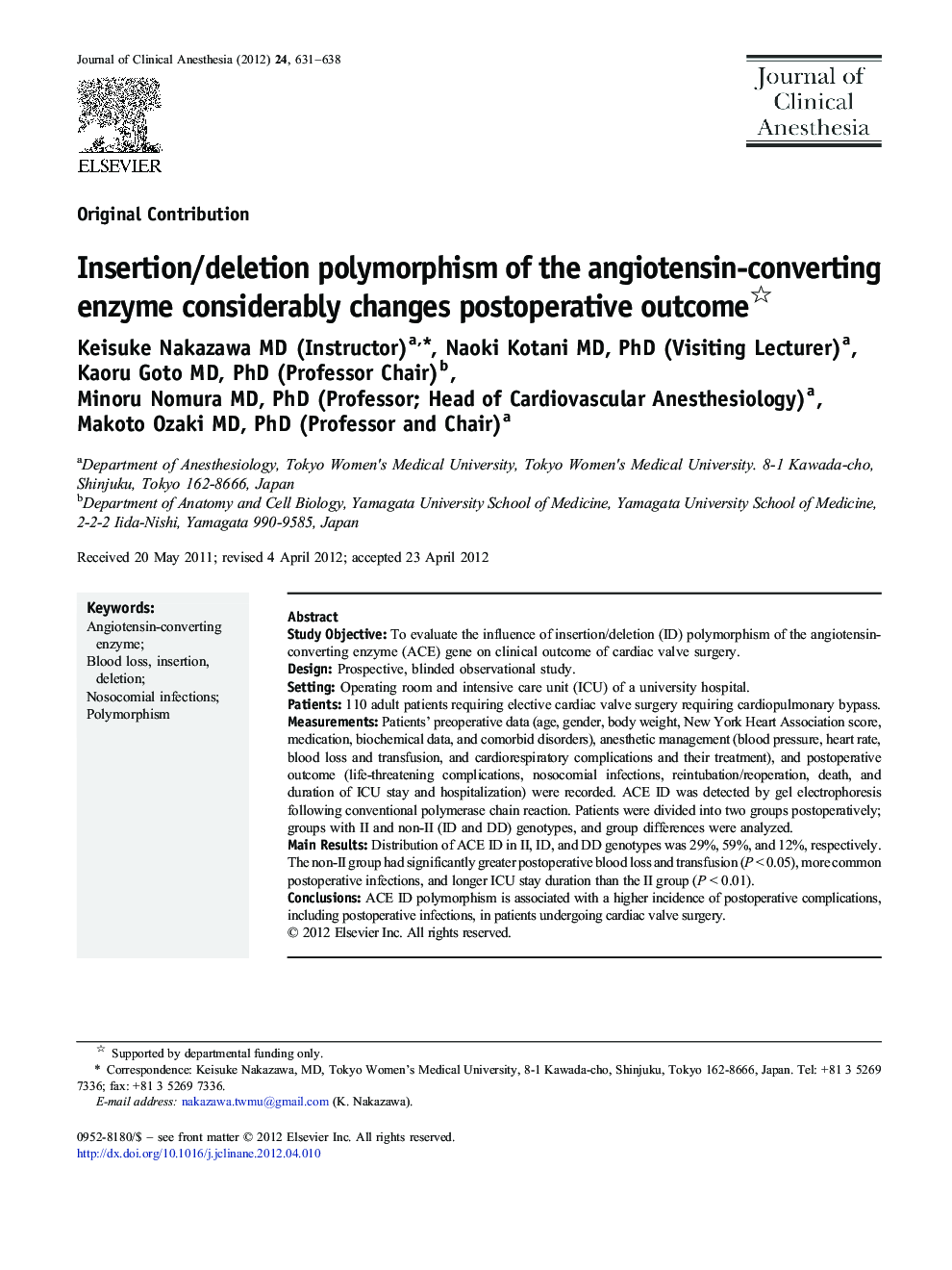| Article ID | Journal | Published Year | Pages | File Type |
|---|---|---|---|---|
| 2763093 | Journal of Clinical Anesthesia | 2012 | 8 Pages |
Study ObjectiveTo evaluate the influence of insertion/deletion (ID) polymorphism of the angiotensin-converting enzyme (ACE) gene on clinical outcome of cardiac valve surgery.DesignProspective, blinded observational study.SettingOperating room and intensive care unit (ICU) of a university hospital.Patients110 adult patients requiring elective cardiac valve surgery requiring cardiopulmonary bypass.MeasurementsPatients’ preoperative data (age, gender, body weight, New York Heart Association score, medication, biochemical data, and comorbid disorders), anesthetic management (blood pressure, heart rate, blood loss and transfusion, and cardiorespiratory complications and their treatment), and postoperative outcome (life-threatening complications, nosocomial infections, reintubation/reoperation, death, and duration of ICU stay and hospitalization) were recorded. ACE ID was detected by gel electrophoresis following conventional polymerase chain reaction. Patients were divided into two groups postoperatively; groups with II and non-II (ID and DD) genotypes, and group differences were analyzed.Main ResultsDistribution of ACE ID in II, ID, and DD genotypes was 29%, 59%, and 12%, respectively. The non-II group had significantly greater postoperative blood loss and transfusion (P < 0.05), more common postoperative infections, and longer ICU stay duration than the II group (P < 0.01).ConclusionsACE ID polymorphism is associated with a higher incidence of postoperative complications, including postoperative infections, in patients undergoing cardiac valve surgery.
